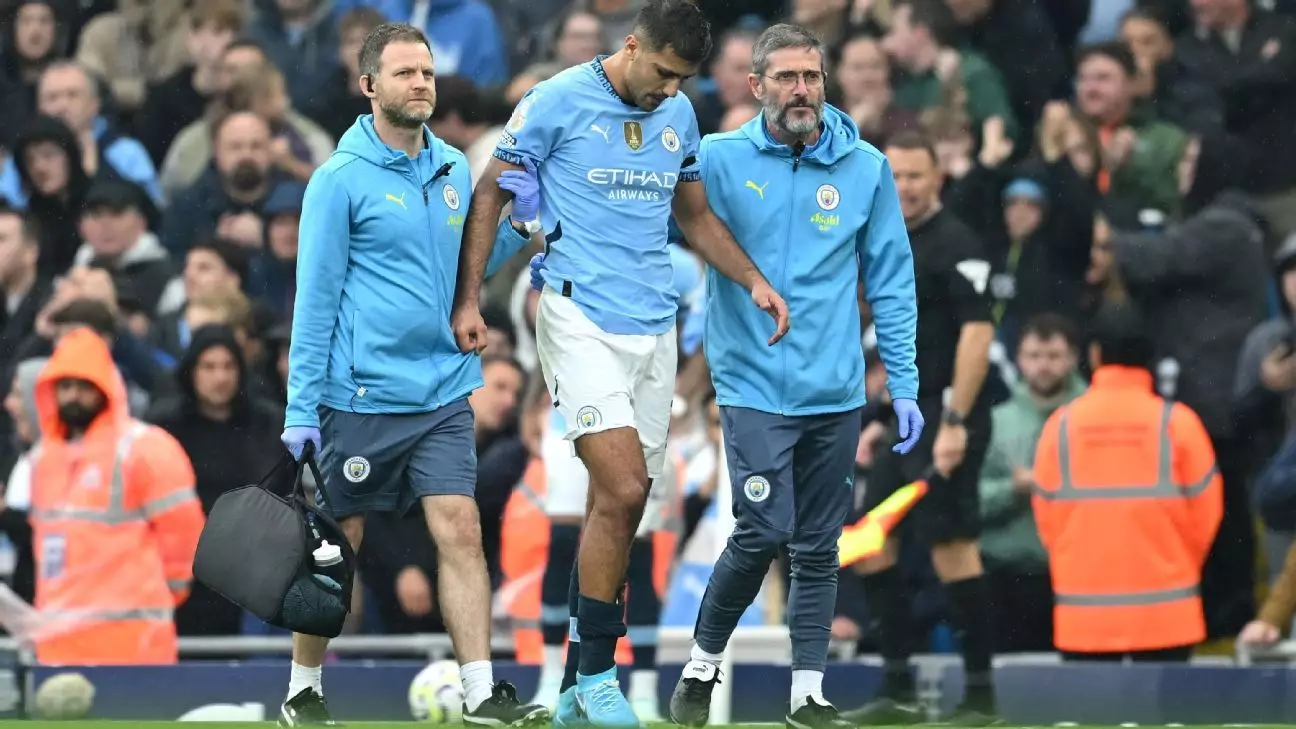In recent months, the heavy burden of fixture congestion in professional football has led to growing discontent among players, coaches, and leagues alike. With the introduction of revamped club competitions by UEFA and the club World Cup by FIFA, the current football season has been dubbed the longest in history, presenting players with an unprecedented challenge. Javier Tebas, the president of LaLiga, has echoed the concerns of many by suggesting that a strike by players is not a far-fetched idea, asserting that players’ complaints regarding their workload are valid.
The essence of the problem lies in the sheer volume of games piled upon athletes, who must balance their physical and mental health alongside their professional commitments. As Manchester City midfielder Rodri pointedly noted, athletes are on the brink of taking drastic action, a sentiment that resonates across the league. The ramifications of such unrest could redefine the landscape of football if players decide to pursue a strike, leveraging their rights as workers to demand change.
Key figures in the Premier League, including Pep Guardiola and Mikel Arteta, have amplified these concerns about player exhaustion. They highlight the alarming trend of clubs pushing their athletes beyond reasonable limits. Real Madrid’s Carlo Ancelotti added a pragmatic perspective, suggesting that players might even consider accepting pay cuts for the opportunity to reduce their workload. The alarming insight from these coaches reflects a growing realization that the mental and physical strain on athletes is becoming intolerable.
Tebas articulated this point succinctly by framing the issue as a matter of simplicity— “two plus two equals four.” He stressed that the mounting pressure from fixtures is not a sustainable model, and failure to address it may lead to dire consequences. Moreover, he underscored FIFA’s inadequate consultation with stakeholders while developing the calendar, emphasizing the need for collaborative dialogue. The gravity of these discussions must not be underestimated, for they affect the very fabric of competitive football.
FIFA, as the governing body responsible for the football calendar, faces mounting scrutiny for its failure to manage the sport’s expanding requirements adequately. The organization has been criticized for crafting a congested schedule without engaging key participants in the football community. This unilateral decision-making is seen as a roadblock to creating a manageable calendar that accounts for the demands placed on players.
There is an urgent need for FIFA to recalibrate its approach, possibly scaling back certain competitions or rethinking the format entirely. The clarion call from Liga representatives for synchronization among football regulators stands as a reminder that without cooperation, the growing dissatisfaction among players could culminate into something far more disruptive—a strike might serve as the catalyst for much-needed changes.
Hopes for an International Game
On a broader note, Tebas has also expressed interest in promoting LaLiga on a global scale, particularly highlighting the aspiration to host games in places like Miami. Since 2018, LaLiga has sought to take regular-season matches to the U.S., a venture that promises to broaden its fan base and increase revenue. However, the implementation of such ideas remains stymied during a transitional period in the Royal Spanish Football Federation, which is currently facing leadership uncertainties.
While introducing a LaLiga fixture into the United States would be regarded as progressive, navigating through the maze of bureaucratic approvals from various federations complicates the timeline. The prospects of such international endeavors provide hope, but they can only flourish in an environment where the foundational issues of player welfare have been suitably addressed.
As football continues to evolve, the voices of players demanding change are becoming increasingly prominent. The alarming prospect of a player strike is not merely a threat but a clarion call for dialogue concerning the unsustainable workload that athletes are subjected to today. As the governing bodies navigate this complex landscape, they must prioritize the wellness of players by seeking a more manageable schedule and engaging in proactive discussions with stakeholders. The future of football, as we know it, may hinge on their ability to adapt to these pressing demands, or face a seismic shift in power dynamics within the sport.

